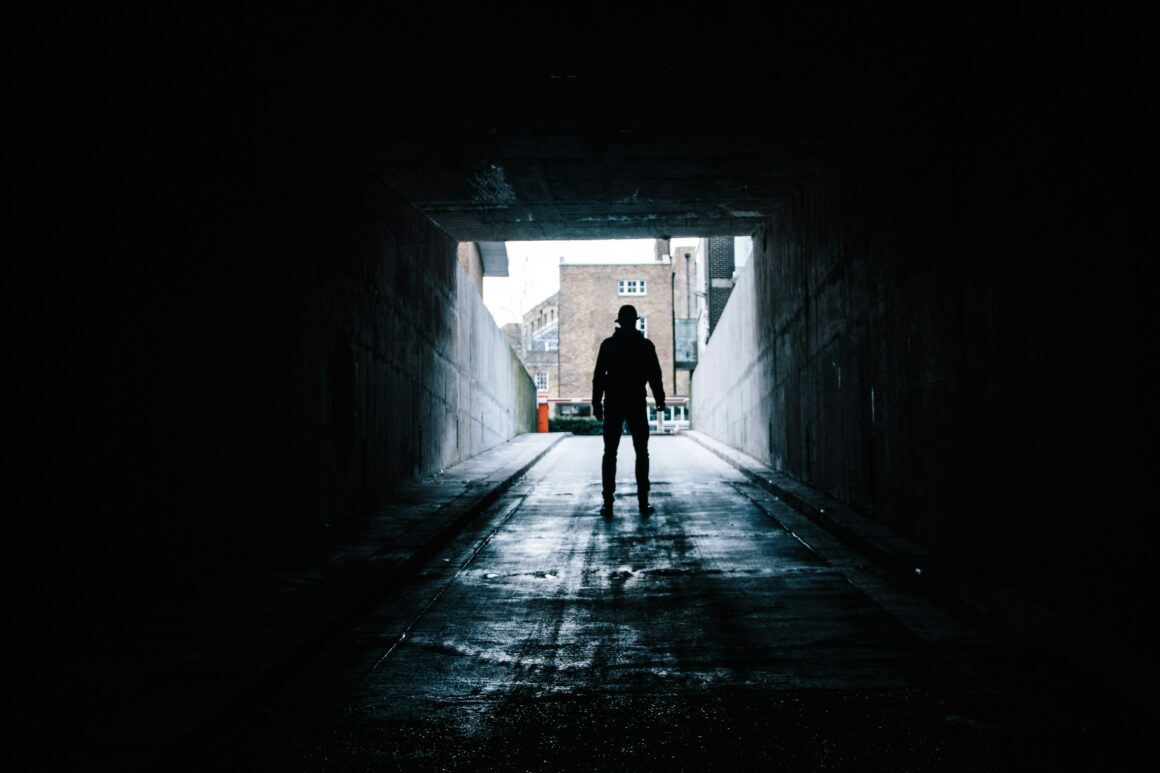June marks Pride Month – A time for celebrating all things LGBTQ+ and raising awareness of how far society has come since the Stonewall riots back in 1969.
But although, on the surface, the world appears to be more inclusive now than ever before, figures show that the LGBT+ community still suffers from terrible hate crimes and abuse.

Hate crime is defined as a criminal offence which is perceived by the victim or any other person to be motivated by a person’s sexual orientation, race, or against a person who is transgender or perceived to be transgender.
Hate crime can take place in the form of physical or verbal abuse, or incitement to hatred – for example, by causing a stir to encourage abuse through the form of violence against a specific person or group.
The UK used to be one of Europe’s most welcoming places for people in the LGBT+ community, according to statistics. But since 2012 there has been a 462% increase in sexual orientation hate crime reports.
Meanwhile, House of Commons Hate Crime Statistics shows that the number of reports regarding transphobia has shot up even further with a 1,426% increase.
Last year, Drag Race star James Lee Williams, better known as The Vivienne suffered a horrific homophobic attack at a McDonalds branch in Liverpool. Attacker, Alan Whitfield, 51 admitted assault by beating and was given a 12-week prison sentence, suspended for 18 months in January this year after the court ruled it was a motivated attack.
Recalling the abuse, Mr. Williams said:
“He carried on, then after the fourth ‘look at the state of you’ I said ‘look at the state of you’, I said ‘look at the state of your face’, to which he said ‘I’ve got skin cancer’ and then punched me straight in the face.”
Figures show which area in the UK is subject to the highest average of hate crime per 100,000 people.
UK hate crime hotspots
In 2023, the police force areas with the highest average of hate crime reports per 100,000 people were:
- Gwent – 4,263
- Hampshire – 4,192
- Gloucestershire – 3,909
- North Wales – 3,389
- Essex – 3,123
- Merseyside – 3,091
- Northumbria – 3,018
- Sussex – 3,000
- West Yorkshire – 2,877
- West Mercia – 2,838
However, charities say that the figures do not show the full picture as many hate crimes still go unreported.
What is a hate crime?
A hate crime is defined by the Crown Prosecution Service (CPS) as any crime if the offender has either:
- Demonstrated hostility based on race, religion, disability, sexual orientation or transgender identity
- Or been motivated by hostility based on race, religion, disability, sexual orientation or transgender identity
Types of hate crime
Hate crime can take three forms:
- Physical assault – Physical assault of any kind is an offence.
- Verbal abuse – This includes verbal abuse, threats or name-calling.
- Incitement to hatred – The offence of incitement to hatred occurs when someone acts in a way that is threatening and intended to stir up hatred. That could be in words, pictures, videos or music, and includes information posted on websites.
How to report a hate crime
There are a few different ways you can report a hate crime. We have broken down the options for you.
- Police – You can call 999 (emergency) or 101 (non-emergency), go in person at any police station, or report online.
- Third parties – Some hate crime victims may find visiting or calling the police stations daunting, so third parties are in place to overcome these barriers. Charities such as SAYiT and Stop Hate UK will be able to take details of the offence and contact the relevant police force on your behalf.
- Crimestoppers – If you want to pass details of a hate crime (or any other) offender but do not want to talk to the police, you can also call Crimestoppers on 0800 555111 or via their website at www.crimestoppers-uk.org. You do not have to give your name and what you say is confidential. It is free to call.
Claiming compensation for a hate crime
If you have been a victim of a hate crime, you may be entitled to claim compensation for the damages you have suffered.
Criminal Injuries Compensation Authority (CICA) awards compensation to those who have sustained an injury due to an act of criminal violence. However, as this is a government-run scheme there is a strict criteria you have to adhere to be successful in your claim.
By using a qualified solicitor, we can assist you in putting the best case forward to return the rightful compensation you are entitled to. We can also appeal on your behalf if we believe the offer for compensation is not as much as you should be entitled to.
We have broken down everything you need to know about claiming compensation from the CICA for a hate crime.
What is a Crime of Violence?
The CICA defines a ‘Crime of Violence’ as a crime which, by intention or recklessness, involves any of the following:
- A physical attack
- Any other act (or failure to act) of a violent nature which causes physical injury to a person
- A threat against a person causing fear of immediate violence
- Sexual assault
- Arson
What is a ‘Relevant Place’?
According to the CICA, to make a successful claim, the offence must have taken place in a relevant place – which means Great Britain.
However, some further niche areas fall under the CICA’s definition. This includes a British-controlled aircraft, a British-controlled hovercraft, or a lighthouse off the coast of Great Britain.
How long do I have to make a claim?
As a general rule, the crime must have taken place within the last two years to put in a criminal injury application to the CICA. There can be exceptions to this rule if, due to exceptional circumstances, the applicant could not have applied earlier.
If an applicant was a child under the age of 18 on the date of the criminal incident, they have until they turn 20 years old to submit a claim.
The Crown Prosecution Service (CPS) and the police have been known to tell an individual not to put in a claim to the CICA until after a criminal investigation has concluded however this can put you in severe danger of missing the pre-imposed deadlines that have been set.
Other CICA conditions I need to adhere to:
- The crime must have been reported to the police as soon as ‘reasonably practicable’
- The applicant must have fully co-operated with the police
- The applicant must fully cooperate with the CICA claims officer
How much compensation will I get?
The CICA calculates awards for criminal injury compensation using a tariff that contains provisions for both physical and psychological injuries.
It pays out on up to three injuries if each is so serious that they would qualify for individual awards, calculated as follows:
- 100% of the injury that achieves the highest compensation
- 30% of an injury that is worth either equal to the most serious injury or the second-highest compensation
- 15% of an injury that is worth either equal to the second most serious injury or the third-highest compensation
- There are also additional payments for losses that may be claimed, 3 are shown below with examples:
Common awards
- A fractured jaw bone resulting in ongoing problems. This would be valued at £3,500 and could rise to £6,200 if an operation had taken place.
- Facial scarring causes serious disfigurement. This could be valued up to £11,000.
- Injuries resulting in permanent tinnitus which is very severe can be valued at £16,500.
- Loss of teeth could be valued up to £3,500
- A permanent and seriously disabling psychological injury, with a potential value of up to £27,000.
Loss of earnings
If your injury has caused you to miss a significant amount of work, then you may be able to claim for loss of earnings. If you have missed work for over 28 weeks, there is the option to add a claim for lost earnings to your CICA application.
You will be paid from the 29th week onwards that you have missed work and payments will be made via statutory sick pay rates. Supporting evidence must be provided from your doctor or employer to demonstrate that you were unfit for work for the length of time mentioned above.
Special expenses
Special expenses, such as medical expenses and alterations to your household, that have arisen as a result of your injury may also be claimed for. These expenses must be reasonable and will not be available if you received them for free, e.g. through the NHS.
Support for hate crime victims
Further reading
Criminal injury (CICA) claims – Oakwood Solicitors
WHAT TO DO NEXT
Get in touch today for a no-obligation consultation. Choose one of the methods on the right-hand side of this page, or call us on 0113 200 9720 to find out how we can help you.
 Aimee Fox
Aimee Fox